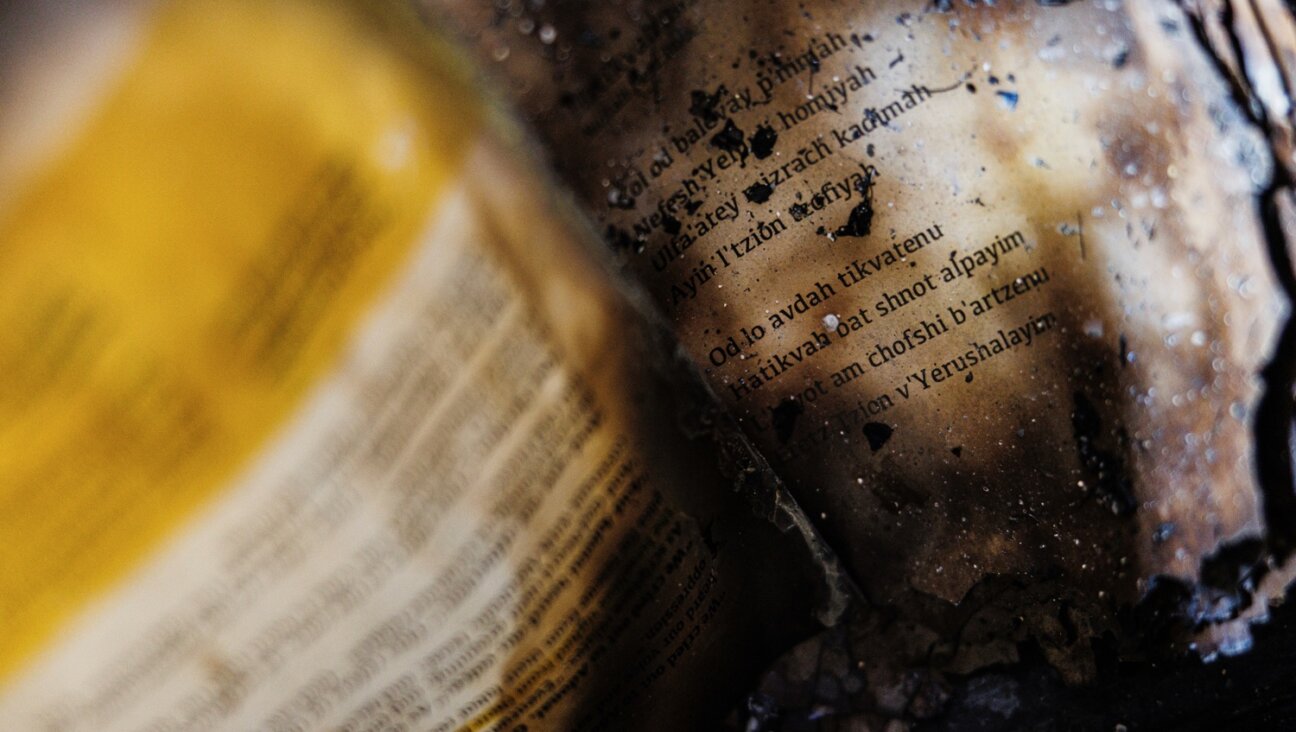The New (Jewish) Face of Rap

Thank Him Later: Drake, a half-black, half-Jewish rapper who garnered fame and some unlikely friends in the hip-hop community, is making waves with his debut album, ?Thank Me Later.? Image by Getty Images
Music writer Jon Caramanica said it right in the New York Times on June 8: “Biracial Jewish-Canadian former child actors don’t have a track record of success in the American rap industry.”
But Drake (born Aubrey Drake Graham), a 23-year-old half-black, half-Jewish gifted rapper from suburban Toronto, is proving Caramanica and us wrong. The rap star, whose debut album, “Thank Me Later,” debuted June 15, has already made big waves in the hip-hop community and has built a strong fan base. In fact, a free show scheduled for the same day in Manhattan was canceled after thousands of fans showed up and a melee erupted.
Drake, who was raised by his Jewish mother in Toronto, attended a Jewish day school and celebrated his bar mitzvah. “I went to a Jewish school, where nobody understood what it was like to be black and Jewish,” he said in a June interview in Heeb magazine.
But Drake left the Jewish suburb of Forest Hills and his Jewish school after getting his start at 14 on the Canadian Television Network teen drama “Degrassi: The Next Generation” as Jimmy Brooks, a wheelchair-bound basketball player. While filming the show, he recorded two amateur mixtapes on the side and, in 2008, hip-hop star Lil Wayne invited him to join his tour. The two collaborated while traveling, which led to Drake’s third mixtape, “So Far Gone.”
The title song, with the promotional help of Lil Wayne, reached the No. 2 spot on the Billboard Hot 100 and garnered Drake two Grammy nominations in 2010, making him the first rapper to be nominated without producting an album.
Drake’s music has been singled out for his thoughtful, personal lyrics and his undeniable vocal talent, and it has given him the opportunity to collaborate with rappers like Eminem and Jay Z, and even with indie rock artists like Peter Bjorn and John.
And despite his stardom in a music genre that is rarely linked to Jews, Drake has continued to self-identify as Jewish. A December 2009 Vibe magazine cover showed him wearing a diamond studded chai necklace.
The Forward is free to read, but it isn’t free to produce

I hope you appreciated this article. Before you go, I’d like to ask you to please support the Forward.
Now more than ever, American Jews need independent news they can trust, with reporting driven by truth, not ideology. We serve you, not any ideological agenda.
At a time when other newsrooms are closing or cutting back, the Forward has removed its paywall and invested additional resources to report on the ground from Israel and around the U.S. on the impact of the war, rising antisemitism and polarized discourse.
This is a great time to support independent Jewish journalism you rely on. Make a Passover gift today!
— Rachel Fishman Feddersen, Publisher and CEO
Most Popular
- 1

News Student protesters being deported are not ‘martyrs and heroes,’ says former antisemitism envoy
- 2

News Who is Alan Garber, the Jewish Harvard president who stood up to Trump over antisemitism?
- 3

Fast Forward Suspected arsonist intended to beat Gov. Josh Shapiro with a sledgehammer, investigators say
- 4

Opinion My Jewish moms group ousted me because I work for J Street. Is this what communal life has come to?
In Case You Missed It
-

Fast Forward Chicago man charged with hate crime for attack of two Jewish DePaul students
-

Fast Forward In the ashes of the governor’s mansion, clues to a mystery about Josh Shapiro’s Passover Seder
-

Fast Forward Itamar Ben-Gvir is coming to America, with stops at Yale and in New York City already set
-

Fast Forward Texas Jews split as lawmakers sign off on $1B private school voucher program
-
Shop the Forward Store
100% of profits support our journalism
Republish This Story
Please read before republishing
We’re happy to make this story available to republish for free, unless it originated with JTA, Haaretz or another publication (as indicated on the article) and as long as you follow our guidelines.
You must comply with the following:
- Credit the Forward
- Retain our pixel
- Preserve our canonical link in Google search
- Add a noindex tag in Google search
See our full guidelines for more information, and this guide for detail about canonical URLs.
To republish, copy the HTML by clicking on the yellow button to the right; it includes our tracking pixel, all paragraph styles and hyperlinks, the author byline and credit to the Forward. It does not include images; to avoid copyright violations, you must add them manually, following our guidelines. Please email us at [email protected], subject line “republish,” with any questions or to let us know what stories you’re picking up.













